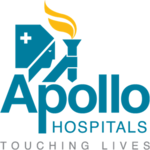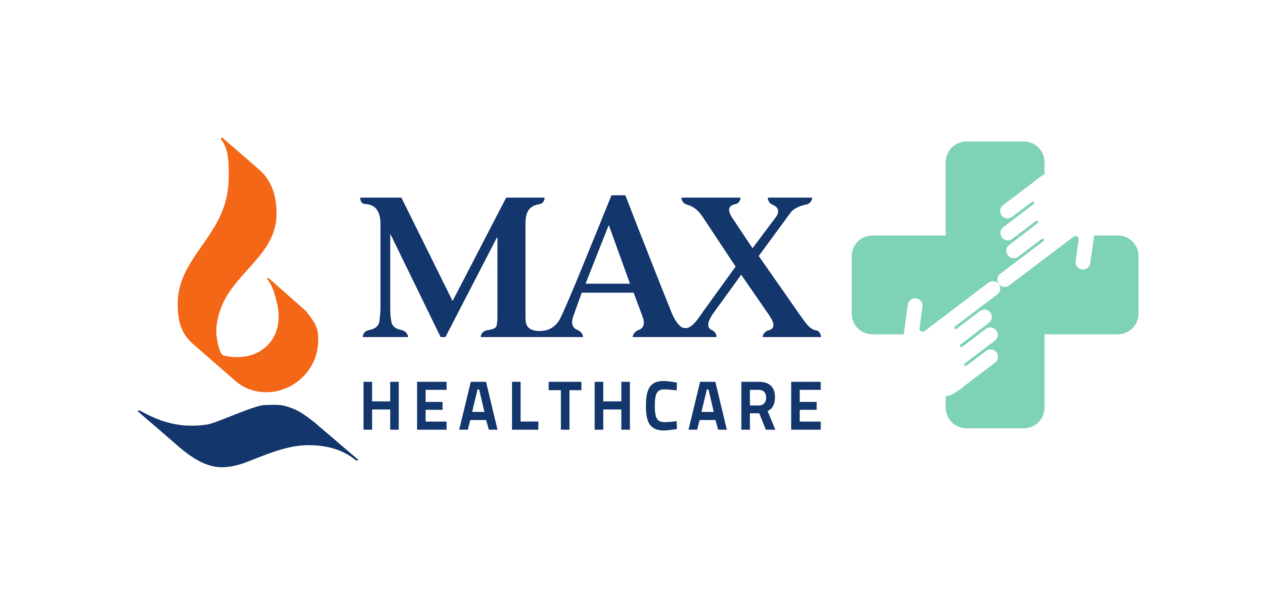
Sun Sips
Sun Sips (VITAMIN D3 drops for Pediatrics use)SUN SIPS
(Cholecalciferol)
Pure Vitamin D 3 Drops 400 IU & 800 IU/ml
Rickets in Infants attributable to low intake of Vitamin D and decreased exposure to sunlight continues to be reported significantly in south-east Asia and India1. Apart from this role the new evidence suggests a vital role of Vitamin D in maintaining innate immunity and prevention of infection, Rheumatoid arthritis, psoriasis, leukemia and Diabetes Mellitus.
A mother supplemented with Vitamin D has a vitamin D content of <25 to 75IU/ liter in her breast milk. Hence, Infants who are exclusively breastfed but who do not receive supplemental vitamin D or adequate sunlight exposure are at increased risk of developing vitamin D deficiency and/or rickets.. Moreover, Infants with darker pigmentation (including Indian infants) are at greater risk of vitamin D deficiency,
The American Academy of Pediatrics, in its clinical report, 'Prevention of Rickets and Vitamin D Deficiency in Infants, Children, and Adolescents,' now recommends that all infants and children, beginning in the first few days of life, receive at least 400 IU of vitamin D each day. A similar recommendation of 800 IU/Day for Very Low Birth Weight babies has been released by the ESPAGN in 2010
Pure Vitamin D preparations are widely available in western world. However, supplementing Vitamin D as per guidelines was difficult in India as no pure vitamin D was available.
We have made this supplementation possible by making the pure form of Vitamin D available.
Sun Sips Oral Drop 30 ml belongs to the class of 'Vitamins', primarily used to treat low blood calcium levels. Sun Sips Oral Drop 30 ml effectively treats various conditions in the body like Vitamin D deficiency, osteoporosis (weak and brittle bones), hypoparathyroidism (parathyroid glands make low levels of calcium in the body), latent tetany (a muscle disease with low blood calcium levels) and rickets or osteomalacia (softening or deforming of bones due to lack of calcium). Vitamin D deficiency occurs when your body has low Vitamin D levels and is caused due to inadequate nutrition, intestinal malabsorption or lack of sunlight exposure.
Sun Sips Oral Drop 30 ml contains 'Cholecalciferol' is a form of vitamin-D. Cholecalciferol (vitamin D3) supplement acts by promoting the absorption of calcium, phosphates and Vitamin A from different organs and helps in maintaining overall health.
Sun Sips Oral Drop 30 ml is available in the form of an oral tablet, capsule, liquid, chewable tablet, an extended-release tablet. Your doctor will decide the dosage based on your medical condition. Sun Sips Oral Drop 30 ml is likely safe to consume. In some cases, it may cause side effects like constipation, increased blood calcium levels, increased calcium levels in urine, vomiting, nausea. These side effects do not require medical attention and gradually resolve over time. If these side effects persist, please consult your doctor immediately.
Tell your doctor if you are allergic to Sun Sips Oral Drop 30 ml. Chewable or dissolving tablets of Sun Sips Oral Drop 30 ml may contain sugar or aspartame, hence caution should be taken in diabetes and phenylketonuria (increased levels of an amino acid called phenylalanine). Pregnant or breastfeeding women should consult their doctor before taking Sun Sips Oral Drop 30 ml. Higher doses of Vitamin D than the recommended daily dose should be used in pregnant women only when advised by the doctor. Sun Sips Oral Drop 30 ml passes into the breast milk, hence breastfeeding mothers need to seek medical advice before starting Sun Sips Oral Drop 30 ml. Sun Sips Oral Drop 30 ml is safe to use in children when prescribed by the doctor. Sun Sips Oral Drop 30 ml should be used with caution in hypercalcemia, renal impairment, heart diseases, kidney stones and hypervitaminosis D (having too much vitamin D).
Uses of Sun Sips Oral Drop 30 ml
Osteoporosis, Osteomalacia (Rickets), Vitamin D deficiency, Hypoparathyroidism and Latent tetany
Medicinal Benefits
Sun Sips Oral Drop 30 ml is used to treat low blood calcium levels. It effectively treats various conditions in the body like Vitamin D deficiency, osteoporosis, hypoparathyroidism, latent tetany and rickets or osteomalacia. Sun Sips Oral Drop 30 ml contains Cholecalciferol (Vitamin D3). Cholecalciferol is a steroid hormone produced in the skin when exposed to ultraviolet light or obtained from food sources. It is a provitamin that is converted into vitamin after intake. It helps maintain blood calcium and phosphorus levels and mineralization of bone. Sun Sips Oral Drop 30 ml is also used in the treatment of familial hypophosphatemia (a group of rare inherited disorders characterized by impaired kidney conservation of phosphate and in some cases, altered vitamin D metabolism).
Directions for Use
Sun Sips Oral Drop 30 ml is available in the form of an oral tablet, capsule, chewable tablet, liquid, and extended-release tablets. Extended-release tablet/Tablet/Capsule: Swallow the tablet as a whole with a glass of water. You can take Sun Sips Oral Drop 30 ml with or without food at regular intervals, as prescribed by the doctor. Do not crush, chew or break it. Your doctor will decide the dosage based on the severity of your medical condition. Chewable tablet: Take Sun Sips Oral Drop 30 ml chewable tablet by mouth. Chew it completely before swallowing. Liquid: Measure the liquid form of Sun Sips Oral Drop 30 ml with a measuring cup and take it as advised by the doctor.
Storage
Store in a cool and dry place away from sunlight
Side Effects of Sun Sips Oral Drop 30 ml
• Constipation
• Increased blood calcium levels
• Increased calcium levels in urine
• Vomiting
• Nausea.
• Chest pain, feeling short of breath
• Early signs of vitamin D overdose are -weakness, metallic taste in your mouth, weight loss, muscle or bone pain, constipation, nausea, and vomiting.
In-Depth Precautions and Warning
Drug Warnings
Tell your doctor if you are allergic to Sun Sips Oral Drop 30 ml. Chewable or dissolving tablets of Sun Sips Oral Drop 30 ml may contain sugar or aspartame, hence caution should be taken in diabetes and phenylketonuria (increased levels of an amino acid called phenylalanine). Pregnant or breastfeeding women should consult their doctor before taking Sun Sips Oral Drop 30 ml. Higher doses of Vitamin D than the recommended daily dose should be used in pregnant women only when advised by the doctor. Sun Sips Oral Drop 30 ml passes into the breast milk, hence breastfeeding mothers need to seek medical advice before starting Sun Sips Oral Drop 30 ml. Sun Sips Oral Drop 30 ml is safe to use in children when prescribed by the doctor. Sun Sips Oral Drop 30 ml should be used with caution in hypercalcemia, hyperparathyroidism, renal impairment, electrolyte imbalance, heart diseases, kidney stones, and hypervitaminosis D (having too much vitamin D).
Drug Interactions
Drug-Drug Interactions: Sun Sips Oral Drop 30 ml may interact with drugs treating high cholesterol levels (cholestyramine), anti-epileptic (carbamazepine, phenobarbital), antibiotics (doxycycline, neomycin, and chloramphenicol), drugs treating bone loss (alendronate), thyroid hormone (levothyroxine), diuretics (hydrochlorothiazide) and heart-related medicines (digoxin).
Drug-Food Interactions: Avoid or reduce the intake of caffeine, soft drinks, and alcohol that inhibit calcium absorption.
Drug-Disease Interactions: Sun Sips Oral Drop 30 ml is contraindicated in hypercalcemia, hyperparathyroidism, hypervitaminosis D, malabsorption syndrome, Vitamin D toxicity, heart/kidney/liver/blood vessel diseases, kidney stones, diabetes, phenylketonuria.
Safety Advice
• ALCOHOL
Drinking alcohol can affect calcium absorption, hence it is advised to limit the alcohol intake while using Sun Sips Oral Drop 30 ml.
• PREGNANCY
During pregnancy, use higher doses of Sun Sips Oral Drop 30 ml than the daily dietary allowance only when advised by the doctor. Your doctor will weigh the potential risks and benefits before prescribing Sun Sips Oral Drop 30 ml.
• BREASTFEEDING
Consult your doctor before taking Sun Sips Oral Drop 30 ml if you are breastfeeding. Sun Sips Oral Drop 30 ml can pass into the breast milk. If Sun Sips Oral Drop 30 ml is used during breastfeeding, please monitor the mother and the infant's serum calcium levels.
• DRIVING
If you experience any dizziness while using Sun Sips Oral Drop 30 ml, do not drive or operate machinery. Please consult your doctor if you experience any dizziness.
• LIVER
Let your doctor know if you have any history of liver diseases before taking Sun Sips Oral Drop 30 ml. Hepatic impairment/liver disease can alter the metabolic and therapeutic activity of certain Vitamin D forms.
• KIDNEY
It is advised to seek a doctor's advice before starting Sun Sips Oral Drop 30 ml if you have kidney diseases like kidney stones or undergoing dialysis. Caution should be taken in patients undergoing dialysis to maintain adequate phosphorus levels and avoid ectopic calcification (calcium deposition).
Habit Forming
No Diet & Lifestyle Advise
• Include dairy products like milk, yogurt, cheese, or milk-based custard in your diet.
• Eat daily a serving of broccoli, cabbage, spinach, and other green leafy vegetables.
• Include the best dietary sources of vitamin D, such as fish liver oils and vitamin D–fortified milk.
• Snack on calcium-rich nuts like Brazil nuts or almonds.
• Sprinkle sesame seeds over your food, vegetables, and salads. Sesame seeds are high in calcium.
• Avoid or reduce the intake of caffeine, soft drinks, and alcohol that inhibit calcium absorption.
• Replace the meat with tofu or tempeh for extra calcium in your food.
Special Advise
• Sun Sips Oral Drop 30 ml may interfere with cholesterol tests, hence please inform your doctor and laboratory staff that you are taking Sun Sips, Oral Drop, 30 ml before undergoing blood tests.
• Clinical monitoring of serum electrolyte concentrations and cardiac function is recommended.
Disease/Condition Glossary
Vitamin D deficiency: When a person cannot get enough Vitamin D through food and exposure to sunlight, it leads to vitamin D deficiency. It often leads to thin, brittle, or misshapen bones.
Osteoporosis: It is a bone disease that weakens and brittle bones by decreasing bone density.
Tetany: A disease condition due to low levels of calcium (hypocalcemia) in the body that causes cramps and spasms in the hands, feet, and larynx (voice box).
Osteomalacia/Rickets: A disease caused by softening and weakening bones in children due to inadequate vitamin D.
Hypoparathyroidism: It is a disease characterized by low parathyroid hormone levels. This can cause low calcium levels and trigger tetany (muscle cramps, spasms, or tremors).
Who needs Vitamin D?
(a)All breastfed and partially breastfed infants from first few days of life. (b)All non-Breastfed infants receiving less than 1 liter of fortified milk/ day. (c)Adolescents receiving less than 400 IU of Vitamin D from various dietary sources and milk.
Ref:
1.Dawodu A, Agarwal m, Hossain M, Kochiyil, Zayed R, Hypovitaminosis D and Vitamin D deficiency in exclusively breast-feeding infants and their mothers in summer: a justification for vitamin D supplementation of breastfeeding infants. J Pediatr 2003;142:168-73
2.Carol L, Wagner, Frank R, Greer, an the section on Breastfeeding and committee on Nutrition. Prevention of Rickets and Vitamin D deficiency in infants, children and adolescents. Pediatrics.2008;122:1142-52.








